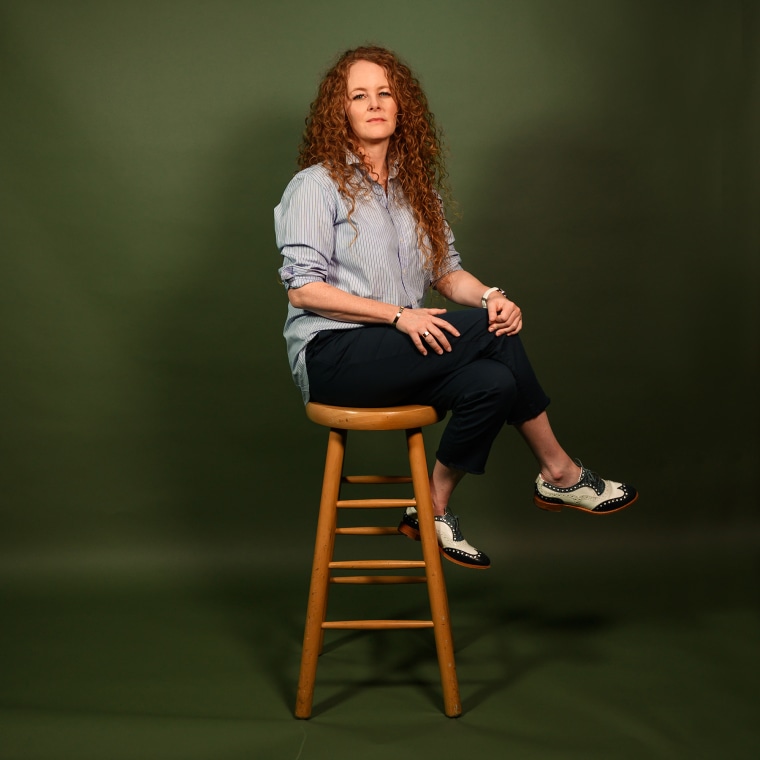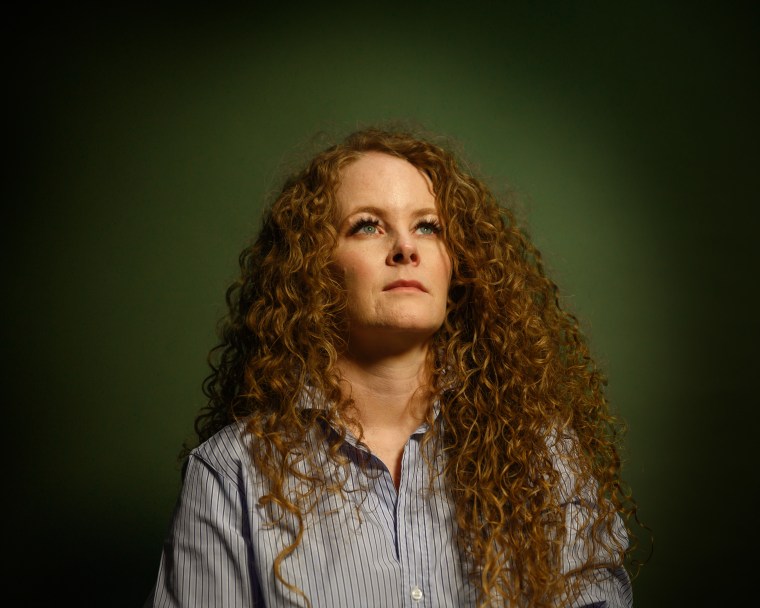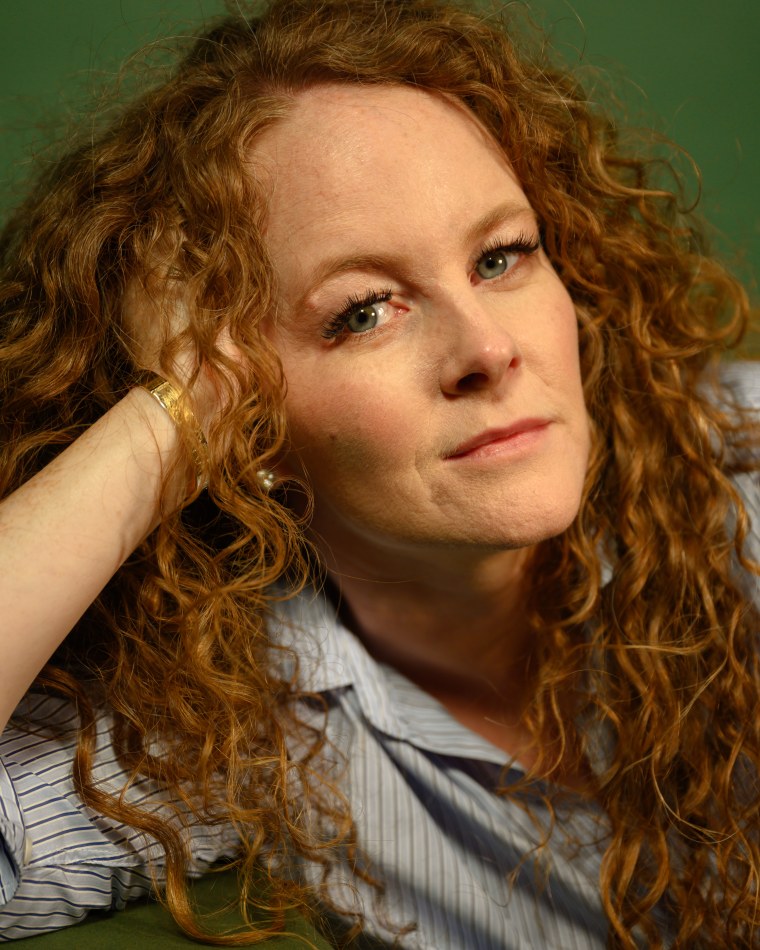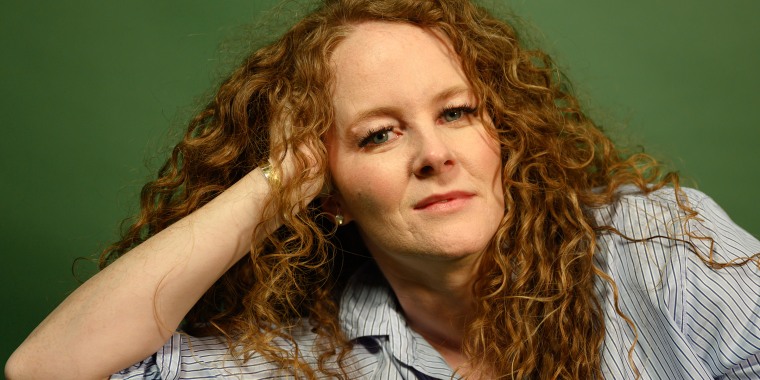We are all works in progress; even the successful women you see owning it on Instagram faced stumbling blocks along the way and continue to work hard to stay at the top of their game. In this series, we're sitting down with the people that inspire us to find out: How'd they do it? And what is success really like? This is "Getting There."
Audrey McLoghlin has built a career around making women feel empowered in the clothing they wear. From her award-winning brand Frank & Eileen (whose designs are loved by none other than Oprah Winfrey and the Duchess of Sussex, Meghan Markle) to her newest venture Grayson, she's spent years designing the types of button-up shirts we've spent our whole lives looking for.
From launching a brand during the recession to the everyday challenges that face entrepreneurs, she doesn't shy away from talking about the less glamorous side of creating something from the ground up.
TMRW: I think it's so fascinating that you were an engineer, can you tell me a little bit about how you pivoted from that into fashion?
AM: My parents were immigrants from Ireland and they said I could do anything in the world I want — that's why they left Ireland to come to America so that I could be anything I wanted — as long as I was a doctor or a lawyer or an engineer. So since I love math and science, I just thought, well, that must mean I'm supposed to be an engineer.
My degree's in industrial engineering and I think the way that it trains you to think and problem solve has really served me well.

It doesn't even really make sense but I just had this burning desire to learn about manufacturing and production and I really wanted to make something. I think that was a little bit of the engineering side, but I happen to love apparel and clothing and fashion. So I thought, well, I'd love to make something — why not instead of making widgets or electrical circuits, why don't I make clothing?
One day I was at the post office and I just was standing in line with someone and we started talking. He had a family member who was in the fashion business and really needed help running her company. I was 25 so, of course, I thought I was totally equipped to be able to run a fashion company. He introduced us and I went to work for her and learned everything from the ground up. It was kind of like going to fashion and business school all at once. So that was the big pivotal point of making the transition and I was really hooked.
Was Frank & Eileen your first venture on your own in the fashion industry?
No, I guess I'm a bit of a serial entrepreneur at this point. So Frank & Eileen would be my best-known brand. But before that my first company as an entrepreneur was, I started a multi-brand retail concept. It was called Oona, named after my mom. While I had those specialty stores, I started my first wholesale brand, Aude.
Frank & Eileen started by accident.
I was in a factory one day in Los Angeles and somebody left me in a room for too long. So I started walking around and looking at everything on the bookshelf and I found this old dusty book and open it up and it had the most beautiful Italian menswear fabrics I'd ever seen. And I just lost my mind. I thought, Why do men get to have this amazing uniform they wear every day made out of the most beautiful Italian fabrics ever? I just wanted to run out of there and reinvent the women's button-up shirt using these beautiful menswear Italian fabrics.
Were there things you were nervous about when you started down a road with a particular business or things that intimidated you about the process?
For me, ignorance is bliss, and I just had blind ambition. Sometimes what you don't know can serve you well. You're just so excited to knock down one barrier at a time and you don't actually know the next one that's going to come up and hit you in the face.
There's so much to be intimidated by, like, How am I going to grow the business? How am I going to scale this? How am I going to hire the right people?
I launched Frank & Eileen in September 2008 — it was the exact moment that the whole economy crashed. Launching a brand in the worst economic crisis in U.S. history is a very interesting journey. It had a whole set of unique challenges, but I think I really learned to use them to my advantage.
How did you navigate that?
This was one of the places that my engineering mentality served me well — just putting your head down and focusing, and also using an engineering mentality that is really focusing on efficiency.
You can be incredibly busy doing a million things, but when you're trying to grow a business you have to focus on what is going to produce results because you need to move it one inch forward every single day so that you can have enough money and enough cash flow to move it to the next step.
You reached this point of success with Frank & Eileen and then you decided to launch Grayson. What was the thought process behind creating this as a separate brand and how do you define the two missions next to each other?
The button-up shirt has always been my armor. Going out there as a female founder, especially when I was so young, it was a fight. I had to fight the fight every day and putting on a button-up shirt was that armor to go out and fight the fight.
When my daughter Grayson was born, it changed my perspective on the world, but it especially changed my perspective on the future.
At the same time that my life was changing, I feel like the whole world was changing fundamentally for women. I just thought it was a really interesting moment to take all these changes and harness them into one new brand that is really modern, to the moment of what's happening.
Launching Grayson with this one ridiculously perfect button-up shirt was to really speak to women and allow them permission to realize that they are superheroes.
I often say that men figured it out a long time before we did. They always had this boys club. They were out there trying to build businesses and build careers and they all leaned into each other and had each other's backs.
I think it's something that took women forever to figure out — somehow it wasn't natural for us to lean in and really help each other. It's really exciting now that we have started our own girl squad, and everybody needs to lean in. Everyone brings something incredible to the table and if you can just give that, it will come back to you in another way. It's happening in a big way and I just wanted to make sure that we were part of it.
What's been the most gratifying part of building something successful from the ground up?
I think the answer to that question might be different at different parts of the journey.
Growing up, my family left Ireland and we had no family with us and watching my mom really feel trapped in an abusive relationship and not feel like she had any choices — that's originally what gave me this very deep passion to own my own life destiny, to really have full control. I think that, whether I knew it or not, was a really big driver for so many years.
When I felt like I was really building my own life and my own path and my own rules, that was the first time when I felt really, really excited about it.

For more like this, follow TMRW on Instagram at @tmrwxtoday.
After that, it started to change shape. Four and a half years ago, I had my own daughter and that completely changed my outlook on life. I felt like I had this responsibility for the future generation of women and the world they were going to grow up in and I really wanted to be part of that.
Over the last few years, I've really been able to share my journey with other people. And the reality of it, not the glittery form where everything looks great, but the real blood, sweat and tears. It is really, really hard and really, really gratifying when you make it through the fire. That's become a new focus of mine — being able to take everything I've learned and help other women on their journey as well.
If somebody's in that fire right now, what would be the advice you'd give to them?
Embrace it.
I always tell myself, especially when I'm going through something so hard that it seems like it might be impossible, If it were easy, then everyone could do it.

If you can break it down into small pieces and solve the problem and build your way out of it, you'll really have something to show for it.
For anyone that's in it, really embrace it. The hard stuff is what's going to separate you from other people.
It's also just nice to know that everybody faces challenges — being able to point out those realities is also important in acknowledging someone's success.
Exactly. I think sometimes people find it hard to say, "This is so hard."
If you only look at the end results, or you only look at the highlight reel, it all looks glamorous.
Somehow, everybody else is making it look easy or more exciting, but if you're not honest, that ends up alienating other people who are trying. They're like "Why is it so hard for me?"
It's so f-ing hard for everyone! I would just like for people to understand that so that they're not so intimidated. It's incredibly hard and it never stops being hard.

